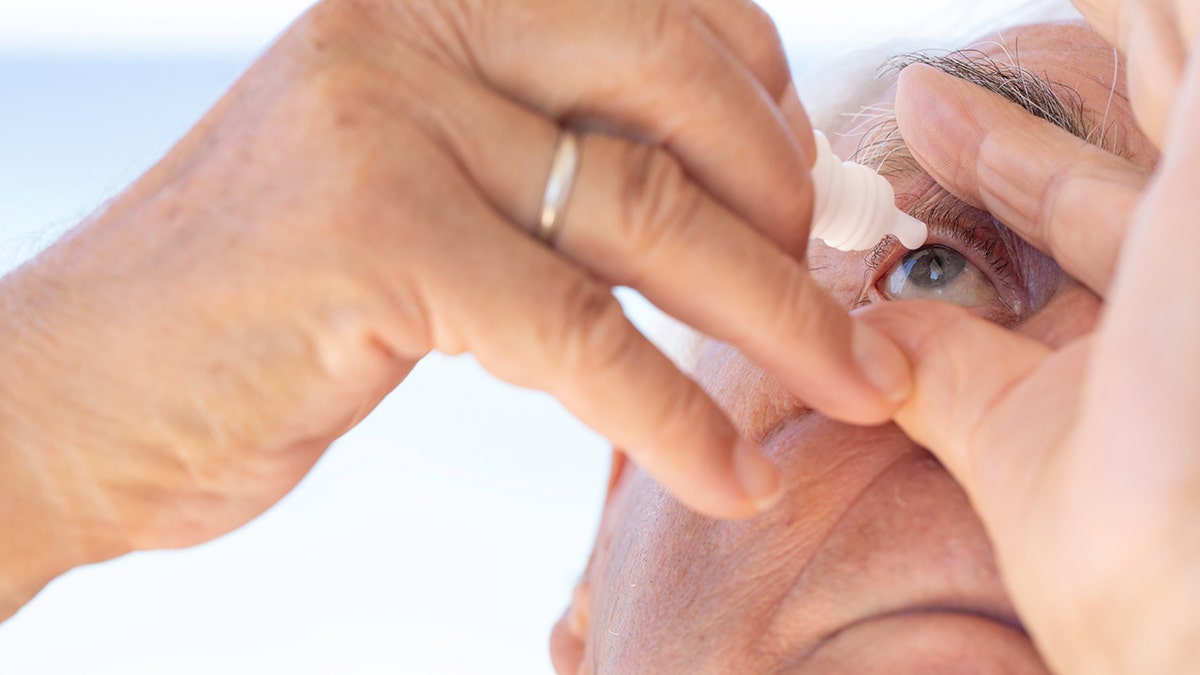NEWYou can now listen to Fox News articles!
As people age, many develop presbyopia — age-related farsightedness that makes it hard to read things at close range — and may turn to reading glasses. But new research suggests another option may be on the horizon.
Scientists have found that specially formulated eye drops could restore close-up vision for many patients, offering a non-surgical, non-glasses approach to age-related vision loss.
The study, presented on Sept. 14 at the 43rd Congress of the European Society of Cataract and Refractive Surgeons in Denmark, followed 766 patients, most in their mid-50s, who were experiencing the classic symptoms of presbyopia.
POPULAR WEIGHT-LOSS DRUGS LINKED TO SUDDEN VISION LOSS, RESEARCH SUGGESTS
Instead of glasses, researchers prescribed drops containing pilocarpine, a drug that helps the eye adjust its focus, along with diclofenac, a mild anti-inflammatory designed to make the treatment more comfortable.
Dr Giovanna Benozzi, director of the Center for Advanced Research for Presbyopia in Buenos Aires, Argentina, said in a press release that the team conducted this research due to the significant unmet medical need in presbyopia management.
“Current solutions, such as reading glasses or surgical interventions, have limitations, including inconvenience, social discomfort and potential risks or complications,” she said.
Patients were instructed to use the drops twice daily, once in the morning and again about six hours later, with the option of a third dose if needed. Their vision was then measured with small-print eye charts over the course of two years.
NEW WEEKLY INJECTION FOR PARKINSON’S COULD REPLACE DAILY PILL FOR MILLIONS, STUDY SUGGESTS
Within an hour of applying the first dose, patients were able to read significantly more lines on the near-vision chart, the researchers found.
In the lowest concentration of the drops, nearly every participant could see at least two extra lines, while stronger formulations gave many the ability to read three or more.

After a full year of daily use, more than eight in 10 patients still enjoyed improved near vision without relying on glasses. For many, the benefit lasted well over a year.
Side effects were relatively minor, the researchers reported. About one-third of participants noticed brief dimming of their vision, while a smaller number reported mild irritation or headaches.
None of the patients stopped using the drops due to these issues, which researchers described as temporary and manageable.
Benozzi, who led the study, said the treatment is not meant to replace surgery for those who want a permanent fix, but rather to provide an accessible, non-invasive alternative.
“This gives patients flexibility, and could spare many from having to constantly reach for their reading glasses,” she added.

Still, experts caution that more work needs to be done before the drops become mainstream. The study was conducted at a single center, meaning its results may not hold true for all populations.
CLICK HERE TO SIGN UP FOR OUR HEALTH NEWSLETTER
While pilocarpine has been used in other eye treatments for decades, long-term, daily use raises questions about potential side effects, such as reduced night vision or, in rare cases, more serious retinal problems.
MORE IN HEALTH NEWS
Extended use of diclofenac may also pose risks to the surface of the eye, an area that requires further monitoring, experts warn.
Outside researchers say the findings are promising, but stress the need for larger, multi-center clinical trials with longer follow-up periods.
Read the full article here










